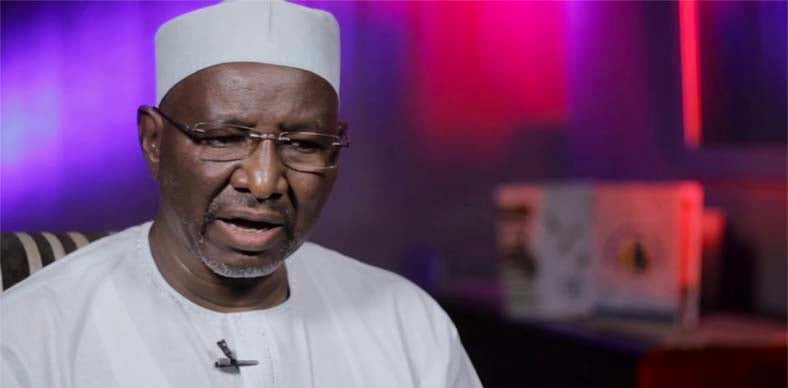The controversy surrounding former Nigerian President Olusegun Obasanjo’s alleged pursuit of a third term in office has resurfaced, sparking renewed debate and conflicting accounts. While Obasanjo vehemently denies ever seeking an extension of his presidency, asserting that he knew the proper channels to pursue such a goal and that no one could credibly claim he solicited their support for a third term, his denials have been met with strong counterarguments.
Dr. Usman Bugaje, a former federal lawmaker who served during Obasanjo’s administration, directly contradicts the former president’s assertions. Bugaje insists that Obasanjo actively sought a third term, employing all means at his disposal to achieve this objective. He contends that Obasanjo’s claim of not directly contacting individuals regarding a third term is insufficient evidence to disprove his pursuit of it, characterizing it as a matter of style rather than substance. Bugaje affirms that lawmakers during that period were acutely aware of Obasanjo’s efforts, and many were even subjected to threats and intimidation by the president’s agents. He recounted instances where legislators, like Senator Victor Lar, were forced into hiding to avoid pressure to support the third-term bid. Bugaje emphasizes the availability of living witnesses, both those who allegedly distributed and received money, and those who resisted, to corroborate these claims, asserting the undeniable nature of the third-term pursuit.
The “third term agenda” became a prominent issue in Nigerian politics in 2006 when a constitutional amendment was proposed, which would have permitted presidents to seek three consecutive terms. This proposal was widely attributed to Obasanjo’s allies, fueling speculation about his intentions. The amendment ultimately failed after intense debate and opposition from civil society groups, opposition politicians, and even members within Obasanjo’s own party, the People’s Democratic Party (PDP). The rejection of the amendment effectively ended Obasanjo’s potential bid for a third term, paving the way for the 2007 general elections that saw the late Umaru Musa Yar’Adua succeed him.
Despite his earlier denials, Obasanjo’s statements in his 2023 New Year message presented a seeming contradiction. He claimed that he could have secured a third term if he desired, citing his “audacity” as sufficient to achieve it. This assertion further fueled the controversy, raising questions about the sincerity of his denial. The conflicting accounts add to the complexity of the issue, making it difficult to discern the truth behind Obasanjo’s intentions.
Adding further weight to the allegations against Obasanjo, former Senate President Adolphus Wabara claimed he was offered a bribe of N250 million to support the third-term agenda. In a recent interview, Wabara confirmed the veracity of this claim, further implicating Obasanjo in the alleged scheme. This revelation provides additional evidence supporting the accusations of bribery and manipulation surrounding the third-term bid.
Furthermore, Atiku Abubakar, a former Vice President under Obasanjo and a former presidential candidate of the PDP, added another layer to the narrative. Abubakar revealed that his close relationships with members of the National Assembly played a crucial role in thwarting Obasanjo’s third-term ambitions. He asserted that these connections enabled him and like-minded legislators to effectively block the agenda. Abubakar’s account highlights the internal resistance within the government to Obasanjo’s alleged power grab. This dynamic adds a crucial dimension to understanding the political landscape at the time and the forces that ultimately prevented the third-term bid from succeeding.
The conflicting accounts and the testimonies from key figures involved in the events of 2006 create a complex and controversial narrative. While Obasanjo continues to deny the allegations, the assertions of Bugaje, Wabara, and Abubakar present a counter-narrative suggesting a deliberate and calculated attempt to extend his presidency. These conflicting accounts leave the truth open to interpretation and continue to fuel debate and speculation. The controversy serves as a reminder of the delicate balance of power in democratic systems and the importance of upholding constitutional term limits to prevent potential abuses of power.














